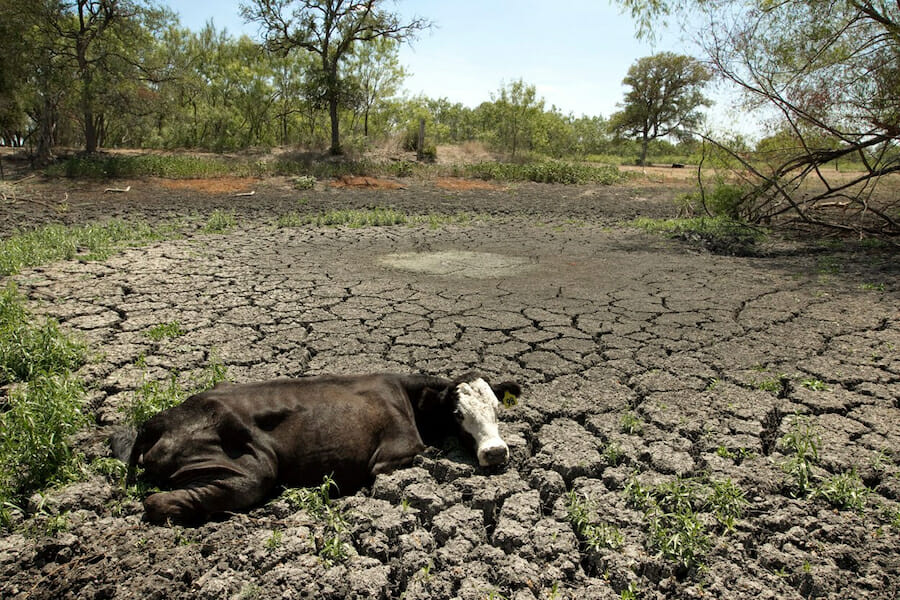
World Leaders Need to Take the Lead to Tackle Climate Change
Will 2020 be the year that the world finally takes the right action to combat climate change? I hope so, but I can’t help but feel frustrated about the lack of progress made since the Paris Agreement of more than four years ago.
The Paris Agreement was reached at the 21st edition of the Conference of the Parties (COP) in December 2015. It was a landmark agreement which saw all 197 countries in the UN Framework Convention on Climate Change committing to combating climate change and limiting global warming to well below 2°C.
I have been dismayed by the lack of action taken since then. Paris was one of the most successful COP conferences in terms of commitment. It was the first time that everyone said ‘we are going to do something’; but instead of the global average temperature going down, it is still rising.
I followed COP25 with great interest last month because it was held in Madrid, where I grew up, but I was left disappointed by the lack of action taken at that conference. Some of the smaller countries are making great efforts but we need the bigger ones to take this threat more seriously.
Countries such as the United States, China and Russia did not send high ranking representatives so they were not able to commit to anything or discuss things at the highest level. Others sent business representatives instead of government officials so they were purely defending their company’s interests. Unless that mentality changes, we will get nowhere.
If the biggest countries and the biggest polluters do not send the right representatives to COP conferences, we don’t have the right commitment and therefore we cannot make the right decisions. Therefore, we face a huge challenge to achieve the goals that everyone committed to achieving just four years ago.
Climate change is an emergency situation, but governments are not treating it like one. I don’t know how we can change the mindset of these countries though because too many political interests influence such decisions.
After COP21, there seemed to be a unanimous commitment to tackle climate change but then Donald Trump became the U.S. president and he announced he was pulling his nation out of the Paris Agreement – an agreement that had been signed by the previous Obama administration.
Everybody is aware of the risk; you do not need to be a scientist to see that the climate is changing, so it is disappointing that the world’s biggest polluters are not doing nearly enough. When will they accept that climate change is the defining issue of our generation?
Coal is the worst in terms of CO2 emissions and Australia is one of the main producers, but they are also one of the most against climate change – even though climate change will affect Australia much more than it will affect many other countries. They signed the agreement at COP21 but, like many, they have not achieved their targets and commitments.
Natural gas could be a first step in the right direction. It is much cleaner than coal, so the CO2 emission per gram is lower. It would only be a temporary solution to set us on the right approach to achieving the final target, which should be 100% renewable energy.
Solar energy is cheaper than any other power plant – coal, oil, and gas – but the main problem is you need to put the money in from the beginning. After that, though, it is free. If only everyone could understand it is the best way forward.
One way of achieving a widespread use of natural gas to complement renewable energy is a wide and fair CO2 pricing. There have been a lot of political discussions on this without being able to reach a final agreement.
We need to reach zero CO2 emissions by 2050 and if we don’t reduce it to less than 50% by 2030 – which is just 10 years from now – it will already be too late.
We are quickly running out of time and have fallen way behind schedule. But as time passes, the commitment and measures needed to achieve our target have to be even more drastic which means they will be even more difficult to implement. We are speaking of an exponential growth, a very fast growth; it’s not linear.
Unless we are able to demonstrate that we are going to make much more money with this new transition, I fear it will never happen.
COP25 was a major disappointment; they spent two-and-a-half weeks and only managed to agree to come up with more aggressive proposals at COP26 in Glasgow in November this year. Countries may come up with more aggressive proposals to set new targets but if there is not a commitment, nothing will happen.
Even if Europe goes 100% clean energy, it makes little difference. We need the world’s biggest polluters like the United States, China, and India to step up to the plate.
We are producing electricity and energy in a very polluted way; we have a population that is increasing; and we are not changing the way we are producing that energy. Unless we act fast, that that can only lead to one thing – disaster.
As a scientist, I will continue to fight, but it feels like a losing battle. We are trying our best but we need politicians to lead from the front with legislation – and they need to do it now.

